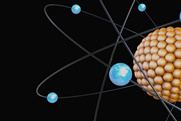- Home
- I am a …
- Resources
- Collections
- Remote teaching support
- Starters for ten
- Screen experiments
- Assessment for learning
- Microscale chemistry
- Faces of chemistry
- Classic chemistry experiments
- Nuffield practical collection
- Anecdotes for chemistry teachers
- Literacy in science teaching
- More …
- Climate change and sustainability
- Alchemy
- On this day in chemistry
- Global experiments
- PhET interactive simulations
- Chemistry vignettes
- Context and problem based learning
- Journal of the month
- Chemistry and art
- Classic chemistry demonstrations
- In search of solutions
- In search of more solutions
- Creative problem-solving in chemistry
- Solar spark
- Chemistry for non-specialists
- Health and safety in higher education
- Analytical chemistry introductions
- Exhibition chemistry
- Introductory maths for higher education
- Commercial skills for chemists
- Kitchen chemistry
- Journals how to guides
- Chemistry in health
- Chemistry in sport
- Chemistry in your cupboard
- Chocolate chemistry
- Adnoddau addysgu cemeg Cymraeg
- The chemistry of fireworks
- Festive chemistry
- Collections
- Education in Chemistry
- Teach Chemistry
- Events
- Teacher PD
- Enrichment
- Our work
- More navigation items
Self-led courses
Professional development courses to support and inspire teachers of chemistry
Accessing subject-specific professional learning is a key challenge for educators. We are here to change that with our easy-to-navigate courses. Each one can be completed at your own pace, giving you the breathing space to balance professional development with everyday life.
What you can expect
All of our courses have been designed with practitioners, for practitioners, so you can trust the quality and relevance of every module you take. Each course focuses on chemistry and can be completed in your own time and in your preferred order.
Active learning
Consolidate your understanding with low-stakes knowledge checks
Social learning opportunities
Engage with other participants to share thoughts, knowledge and experiences
Subject-specific
Discover tasks and ideas to try in the classroom
Reflective practice
Opportunities to review your learning and set meaningful goals

Why choose us?
- Join over 1,800 teachers who have engaged with RSC education professional development offers, including courses and one-off teacher support sessions, over the last year.
- 96.5% of those who completed the Effective pedagogy course during beta launch agreed or strongly agreed that the course will have a positive impact on their teaching.
- 99% of those attending our online live courses agreed or strongly agreed that the course will have a positive impact on their teaching.
More reasons to start learning with the Royal Society of Chemistry.
Testimonials

A brilliant course with a phenomenal breadth of topics, all of which will inform my teaching practices going forward.

This has been an extremely interesting and informative course, and it has been enjoyable to work through. There has been a good range of information and resources to support each learning objective.

There are loads of techniques that I now want to try and speak to colleagues about. It’s given me a fantastic toolkit.
FAQs
Who are these courses for?
The courses are suitable for teachers of chemistry at any stage in their career, and are available in the UK, Ireland and countries worldwide. They are suitable for teachers following an international curriculum (or one that aligns with the UK curriculum), as well as those teaching in English, for instance in the US, Canada and Australia.
Will I receive a certificate?
You will receive a certificate of course/module completion for your professional development portfolio/record once you have completed all of the required tasks.
Which countries are these courses available in?
This course is currently available in the following countries: Australia, Austria, Bahamas, Bangladesh, Belgium, Brazil, Bulgaria, Cambodia, Canada, China, Croatia, Cyprus, Czechia, Denmark, Egypt, Estonia, Fiji, Finland, France, Germany, Ghana, Greece, Guernsey, Hong Kong S.A.R. China, Hungary, Iceland, India, Indonesia, Ireland, Isle of Man, Italy, Japan, Jersey, Jordan, Kuwait, Latvia, Lebanon, Lithuania, Luxembourg, Macao S.A.R. China, Malaysia, Malta, Mauritius, Netherlands, New Zealand, Norway, Pakistan, Philippines, Poland, Portugal, Qatar, Romania, Singapore, Slovakia, Slovenia, South Africa, South Korea, Spain, Sweden, Switzerland, Taiwan, Thailand, Uganda, United Kingdom, United States.
Do you offer group discounts for schools or multi-teacher purchases?
We may be able to offer a discount depending on the number of teachers or schools involved. If you’re considering a group purchase, please email EducationPD@rsc.org with a few details – such as how many courses you are interested in and for how many teachers – and we’ll be happy to explore what options might be available.
Who do I contact with queries?
You can contact the Education Professional Development and Learning team by emailing EducationPD@rsc.org.















